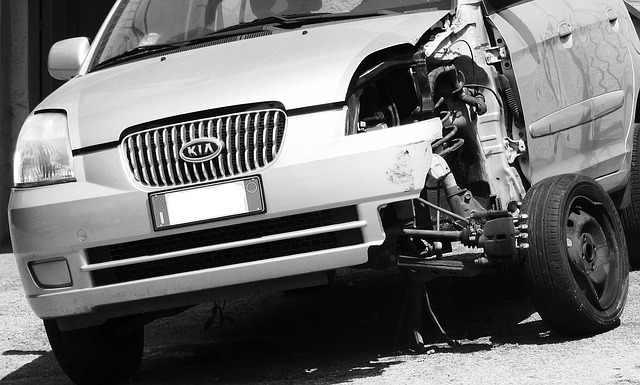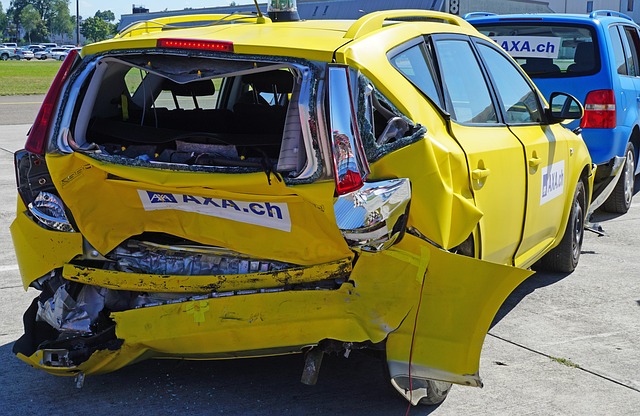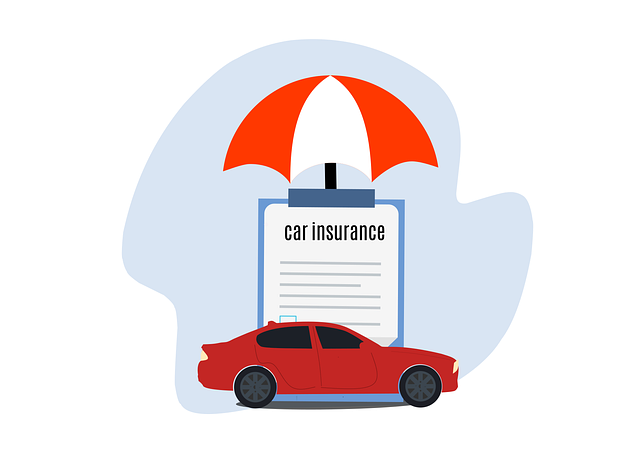Comprehensive car insurance provides broad protection against diverse risks beyond accidents, covering theft, vandalism, natural disasters, and more. It offers peace of mind by compensating for vehicle loss or damage and includes benefits like roadside assistance and rental car coverage. Understanding what's covered helps drivers make informed decisions tailored to their unique needs, while being aware of exclusions ensures suitable policy selection. "What Does Comprehensive Car Insurance Cover?" is crucial for choosing the right balance between thorough protection and affordable premiums.
“Unsure about comprehensive car insurance and its coverage options? This guide is your navigator through the intricacies of protecting your vehicle. We’ll delve into what exactly comprehensive car insurance covers, exploring key areas like damage from accidents, natural disasters, and theft.
Learn how excess and deductibles impact your costs and understand common exclusions to be fully informed. By the end, you’ll know how to compare policies effectively and even discover optional add-ons for enhanced protection.”
Understanding Comprehensive Car Insurance: A Deeper Look

Comprehensive car insurance, often misunderstood as an all-encompassing solution, actually refers to a type of coverage that goes beyond the standard liability and collision policies. Unlike those which primarily focus on accidents involving other vehicles or property damage, comprehensive insurance is designed to protect against a wider range of risks, many of which don’t involve another vehicle at all. What does comprehensive car insurance cover? In short, it covers a variety of incidents including theft, vandalism, natural disasters (like floods or extreme weather), and even accidental damage like rolling your car off a cliff.
This type of coverage is particularly valuable for vehicle owners who want peace of mind knowing that their cars are protected from various unforeseen circumstances. It also includes benefits like roadside assistance and rental car coverage during repairs, ensuring that drivers remain safe and mobile even when an incident occurs. Understanding these aspects can help prospective policyholders make informed decisions about what type of coverage best suits their needs.
Unveiling the Key Coverage Areas

Comprehensive car insurance, often referred to as ‘comprehensive coverage’, is a type of auto policy that goes above and beyond the standard protections. It’s designed to safeguard against a wide range of potential risks and damages, providing peace of mind for drivers who want to be fully prepared. When you wonder, “What does comprehensive car insurance cover?”, you’ll find it offers protection for various scenarios, from the typical to the uncommon.
This coverage typically includes protection against theft, damage caused by natural disasters like floods or earthquakes, and even vandalism. It also covers certain medical expenses in case of an accident, offering financial relief during challenging times. Moreover, comprehensive insurance may include provisions for loss of use, compensating you if your vehicle is repaired or replaced and you need a temporary alternative while it’s out of commission.
Protecting Your Vehicle Against Diverse Risks

Comprehensive car insurance offers protection against a wide range of risks, going beyond the typical coverage provided by liability or collision policies. When you purchase comprehensive insurance, you’re essentially safeguarding your vehicle from diverse unforeseen circumstances. This includes damage caused by natural elements like storms, floods, or falling trees. It also covers incidents such as animal-related accidents, vandalism, and even theft.
Understanding what does comprehensive car insurance cover is essential for any vehicle owner. Unlike collision coverage which primarily deals with accidents involving other vehicles or fixed objects, comprehensive insurance steps in to protect your car from perils unique to its environment. This could mean repairs or replacement if your vehicle suffers damage while parked, during a break-in, or as the result of an attempted theft. By offering this level of protection, comprehensive car insurance provides peace of mind and ensures that unexpected events don’t leave you burdened with substantial repair or replacement costs.
The Role of Excess and Deductibles

Comprehensive car insurance, a key component of vehicle protection, goes beyond basic coverage by addressing various risks and unforeseen circumstances. When considering what does comprehensive car insurance cover, understanding excess and deductibles is essential. An excess, often referred to as a deductible, is a predetermined amount that the policyholder agrees to pay out-of-pocket before the insurer covers the rest of the repair or replacement costs. This mechanism encourages responsible driving by making policyholders more mindful of their actions.
Excesses and deductibles play a vital role in balancing coverage benefits with personal financial responsibility. Choosing an appropriate level of excess allows individuals to customize their insurance to suit their budget and risk tolerance. By understanding these parameters, policyholders can make informed decisions when navigating the complexities of comprehensive car insurance options, ensuring they receive adequate protection while managing potential financial exposures effectively.
Common Exclusions to Be Aware Of

When considering what does comprehensive car insurance cover, it’s equally important to understand common exclusions. These are specific circumstances or events that are not included in your policy, even if they involve damage or loss to your vehicle. For instance, many policies exclude coverage for damages caused by acts of war, terrorism, or natural disasters like earthquakes and floods. Additionally, certain high-risk activities such as racing, drag strips, or testing new vehicles on public roads are usually not covered.
Another area to be aware of is the treatment of specific vehicle parts and situations. Some policies might exclude coverage for custom or aftermarket modifications, while others may have limitations on the value of personal belongings stored in your car. Additionally, comprehensive insurance typically does not cover liability damages resulting from an accident; it primarily focuses on repairing or replacing your own vehicle. Understanding these exclusions is crucial when evaluating whether comprehensive car insurance aligns with your specific needs and circumstances.
Comparing Policies: What to Consider

When comparing comprehensive car insurance policies, several key factors should guide your decision. Firstly, understand what each policy covers in detail, focusing on the specifics of the “What Does Comprehensive Car Insurance Cover?” question. Different providers may offer variations, so ensure you’re aware of any exclusions or limitations. Secondly, assess the deductibles and liability limits; these can significantly impact the cost of your insurance and the level of protection you receive. Compare different plans to find a balance between comprehensive coverage and affordable premiums that aligns with your needs and budget.
Enhancing Coverage: Optional Add-ons

Many standard auto insurance policies provide liability coverage, which protects against financial loss in case of an accident where you’re at fault. However, what does comprehensive car insurance cover? This type of policy goes above and beyond, offering protection for a wider range of scenarios. Beyond damages caused by accidents, comprehensive coverage can include protection against theft, vandalism, natural disasters, and even road hazards like fallen trees or wildlife.
Optional add-ons can further enhance your coverage. For example, if you frequently drive in areas prone to extreme weather conditions, adding specific coverage for these events can provide peace of mind. Similarly, if you have expensive belongings in your car, such as electronics or professional equipment, consider add-ons that cover their replacement or repair in case of damage or theft. These add-ons allow you to customize your policy to fit your unique needs and ensure you’re adequately protected.
